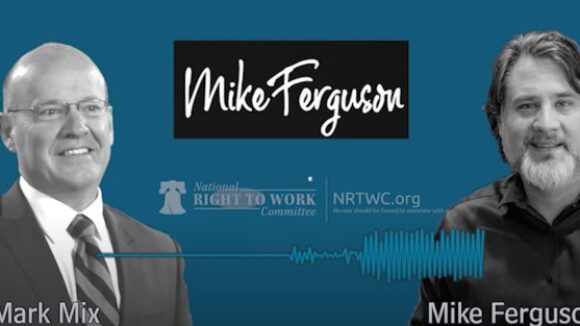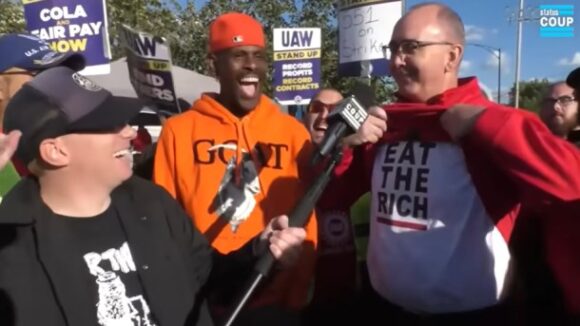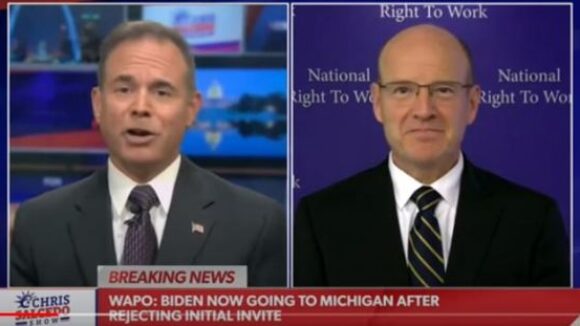Mark Mix discusses the Fallout from the UAW Strike and Big Labor $$$ on St. Louis’s Newstalk
Mark Mix Discusses the Fallout from the UAW Strike on St. Louis’s Newstalk with Mike Ferguson.
The New York Post takes a look at New York’s Big Labor movement and sees that union bosses in the Big Apple are probably longing for days gone by:
New York’s union leaders this year decided to pull the plug on their annual Labor Day parade – a city tradition that dates all the way back to 1882.
And though officials insist that they’re only eschewing the festivities in favor of more direct political action – a political rally at Ground Zero for insurance coverage – it’s difficult not to view the cancellation as another sign of big labor’s shrinking profile.
To be sure, the ability of New York’s unions – particularly the public-employee groups – to bribe and bully the City Council and the state Legislature to do their bidding is unquestioned.
Indeed, some would say dismaying.
But the old passion is gone.
Actually, the parade has been pretty much a hit-or-miss affair for some time now.
It was canceled in 2002, coming so close to the first anniversary of 9/11, and again in 2004 in favor of an anti-Bush protest at the Republican National Convention.
The parade sputtered out entirely for most of the ‘70s due to sparse attendance, and hasn’t even been held on Labor Day for the past decade.
Then again, this hasn’t exactly been a stellar year for the sponsoring organization, the Central Labor Council: Its former head, Brian McLaughlin, is under indictment for racketeering, embezzlement and fraud, to the tune of $2.2 million.
As U.S. Attorney Michael Garcia said in announcing the indictment – which includes 44 counts and runs to 186 pages: McLaughlin’s alleged larceny “lends new meaning to the term ‘hand in the till.’ “
Besides which, the fact remains that the only real growth in the American labor movement – especially in New York – has been in the public sector: Government workers whose power derives from their unions’ ability to shake down elected officials, particularly during an election year.
The labor movement, in other words, really doesn’t have all that much to celebrate. We can’t think of any other reason why the CLC would voluntarily give up an opportunity for politicians to show up and display their fealty to organized labor.
Other than the likelihood that no one would have shown up to watch it.

Mark Mix Discusses the Fallout from the UAW Strike on St. Louis’s Newstalk with Mike Ferguson.

Union boss Shawn Fain claims to oppose “corporate welfare,” but isn’t hesitant to personally benefit from it. (Credit: Status Coup News…

National Right To Work President Mark Mix appeared on Newmax’s Chris Salcedo Show to discuss the ongoing UAW Strike and It’s Potential Impact on the Economy.